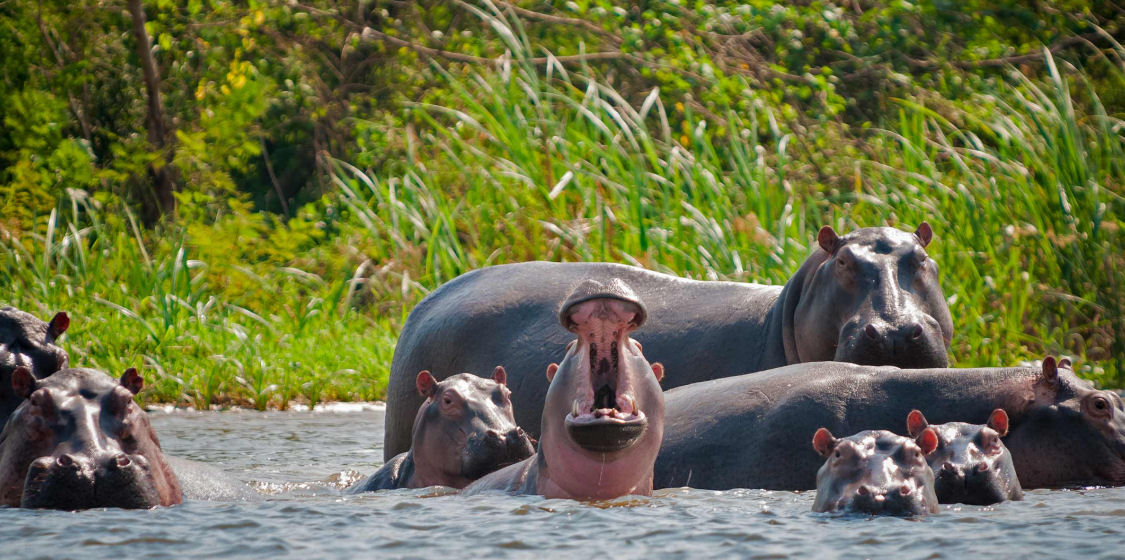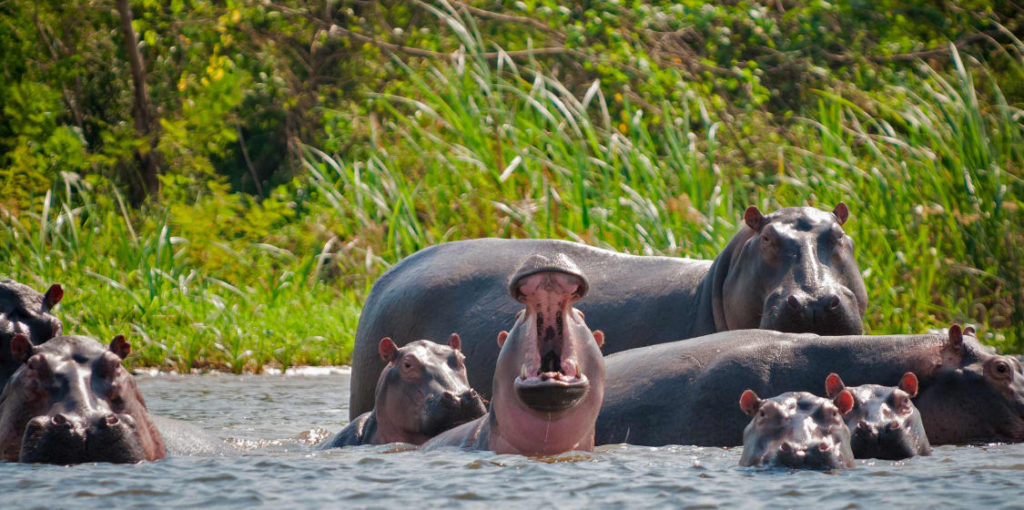In Zambia, a land-locked country in Central Africa, trophy hunters have been given the green light to shoot 250 hippos per year, but animal rights and conservation groups campaigners have questioned the motives behind the ostensive “cull”.
The hippos live in the Luangwa River and are protected by the South Luangwa National Park. In spite of this, Zambian wildlife authorities have proposed a cull of 250 hippos per year for the foreseeable future. They say there are too many hippos and overcrowding could lead to an outbreak of anthrax that could spread to other animals.
A South African hunting company has begun advertising the opportunity to kill five hippos per trophy hunter.
Not surprisingly, animal rights and conservation groups are pushing back against the Zambian government’s plans. They have asked whether a cull is really necessary.
“The culling of wild animals in an effort to control numbers is an outdated approach to the management of wildlife areas,” said David Barritt, spokesperson for the Animal Survival International (formerly Political Animal Lobby). “Our organisation condemns the proposal by the Zambian government which is effectively selling its natural heritage – and its incredible achievements in conservation – to trophy hunters. We don’t believe the proposed cull is motivated by science, it is motivated by money.”
The hippo population on the Luangwa River is currently the largest in the world. The IUCN estimates that around 25,000 hippopotamus live in the Luangwa River and notes that there may be as many as 42 hippos per square kilometer in places. Astonishingly, around 20 percent of the world hippo population is found in this this single river.
Only 115,000 to 130,000 hippos remain in the wild, which means they are significantly less common than the African elephant. Although the global hippo population is stable, the animals are affected by habitat loss and poaching. Hippos are hunted for meat and for their teeth, which are traded as ivory.
And there is no scientific consensus that the Luangwa River is overpopulated by hippos.
A paper published by Chansa Chomba in the journal Scientific Research warns against a substantial reduction in hippo numbers, saying that if the hippo population dropped to very low levels, as was the case prior to the 1960s, people would encroach on hippo habitat.
“Once human settlements get established in the former (hippo) range, it would not be politically feasible to later evacuate people for the sake of reclaiming hippo habitat.” Reads the paper.
“Is the Luangwa valley overpopulated by hippos as the wildlife authorities claim?” asked Barritt. “The science is tenuous and the culling strategy is risky. What happens if there is a drought, as is occurring right across southern Africa? As soon as there is a shortage of water and grazing, hippo populations will plummet. Will hunters still be able to make their kills?”
Barritt points out that hippopotami used to fill the Nile River. Today the animals are not only extinct in the Nile River, but across all of North Africa.





